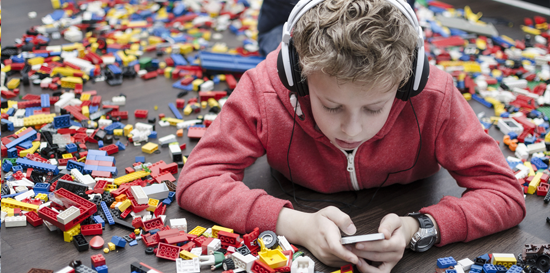 You don’t have to be paranoid about the perils of letting your children use the internet. You just have to be aware, and use some everyday common sense, advises Scott Dunlop
You don’t have to be paranoid about the perils of letting your children use the internet. You just have to be aware, and use some everyday common sense, advises Scott Dunlop
In a constantly changing environment you can’t always rely on the same rules. When you have two environments changing at the same time, a different set of skills is required. Take online safety and parenting. I know parents who approach this subject with trepidation, especially since it’s so new that the ink hasn’t even dried on the loosely-termed “rules”.
How do we avoid getting tricked into a fantasy friendship with a freak in a basement, or getting bundled into a panel van to be trafficked to some foreign country?
Simple. Just unplug your connection and ditch the devices. Thankfully, there are other options.
First of all, look at the world around you. Apart from optional connectivity – social media, games and searches – there are many contexts in which being online is a necessity. Many careers and life skills involve the Internet. Your children are growing up in world totally alien to the one parents knew as kids.
While I respect the choice some of my friends have made to keep every hint of their children off the Internet, I think it’s almost impossible to go off the grid. I have seen people like the visiting drama club at school and the local shopping mall holiday craft people uploading pictures of my kids. There are probably a host of pictures already out there. I prefer a more cautious approach. If I don’t know someone well, I will ask if they mind photos of their kids at all, and then if they mind any pictures being online. I don’t always get that right, but it’s good to at least try and be courteous.
I’d be annoyed if images of my children were being used to sell products without their or my knowledge, for example.
If you’ve experienced kids, you’ll know that they’re notoriously bad at doing what you’d like or expect them to do on camera. They may pull faces, move around or completely object to photos. As they get older, their relationship with the lens becomes more complex and self-conscious. With my kids, as they hover around the teens, I get their input: would they mind me sharing that pic of them having a milkshake? If they do, I don’t share it, even if (to me, anyway) they look like tiny professional models.
That’s part of the online safety process: slowing down the temptation to share an image. Instead of instant sharing via one click, a conversation happens. A bit like the internal conversation I’d like my kids to have with themselves when the time comes. Should I upload that? Who will see it? Could it embarrass me or someone else?
Having been online before Google, Facebook, YouTube, or Instagram, I have noted that it’s very difficult to apply filters to accounts or machines. It’s wise to slap parental control settings on devices if you have them, but the loopholes are extremely leaky. Any kid who wants to bypass controls can probably find a way.
Before relying on software that need to be updated more than Adobe, decide for yourself how mature your child is and how that will translate to online behavior. Is there accountability and common sense? Can you sit with your kid and have a discussion about online safety?
There’s a lot of paranoia about online safety. Common sense. It sounds like something immovable, a rock you can’t pass in the road, but it isn’t. Adults get it wrong, and so do children. A good place to start is a no-nudity policy. Keep your kids’ bodies off the internet. There are sickos out there finding ways to save other people’s pictures, even the ones you thought were of an innocent bath.
Talk to your child about appropriate content and social media channels. Some social media channels have age restrictions, and for good reasons. These conversations will differ according to their ages.
Online bullying, financial safety, personal details, befriending strangers: all of these make for valuable conversations.
I love the wealth of information and connectivity of being online and I think it’s more important to help your child watch out for dangers than to shield them. An empowered kid will have the skills to learn better ways of adapting to the online environment. The rules are constant: know your child, find out as much as you can, and be cautious.

Leave a Reply